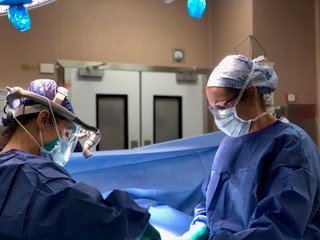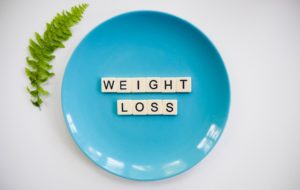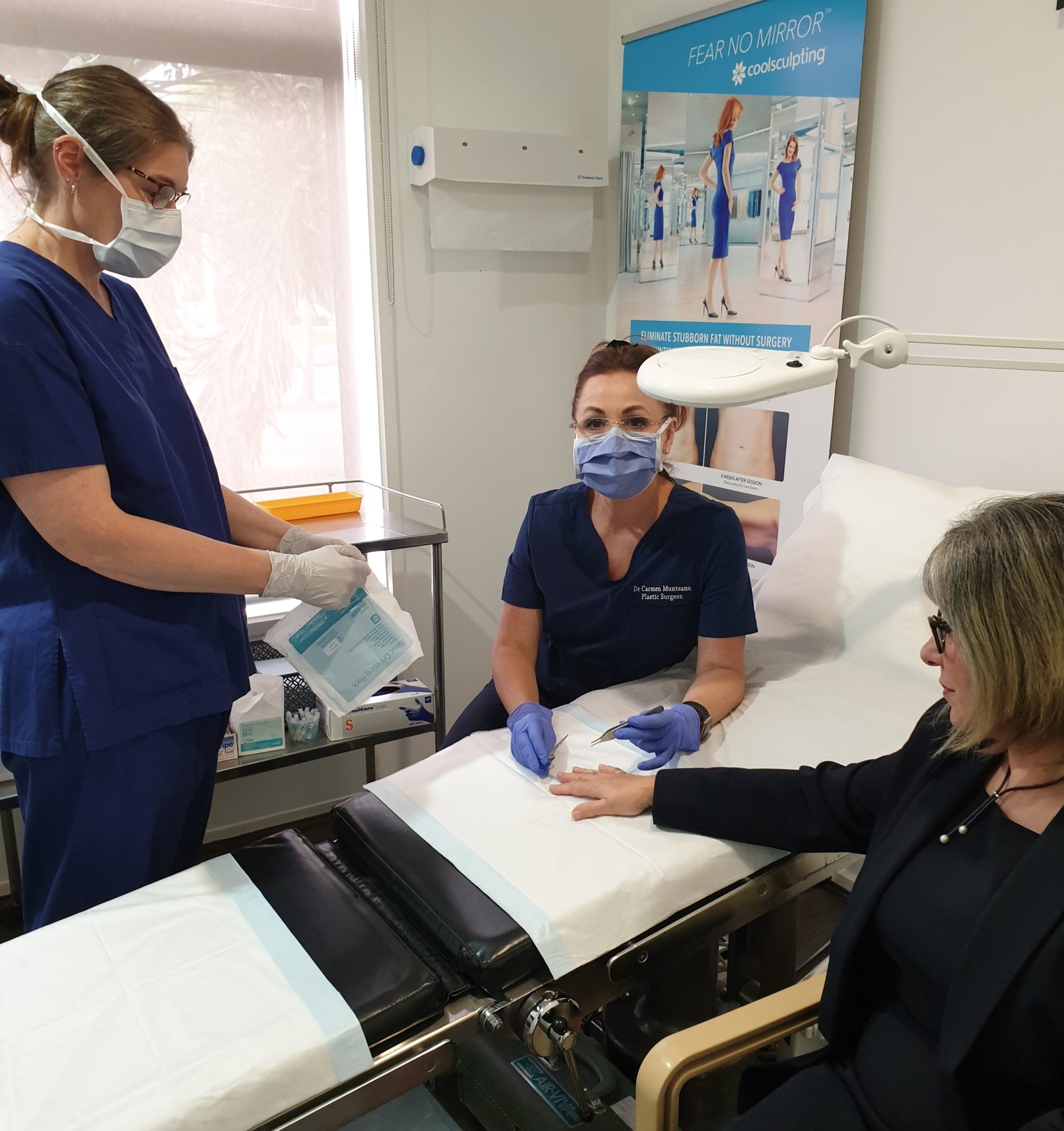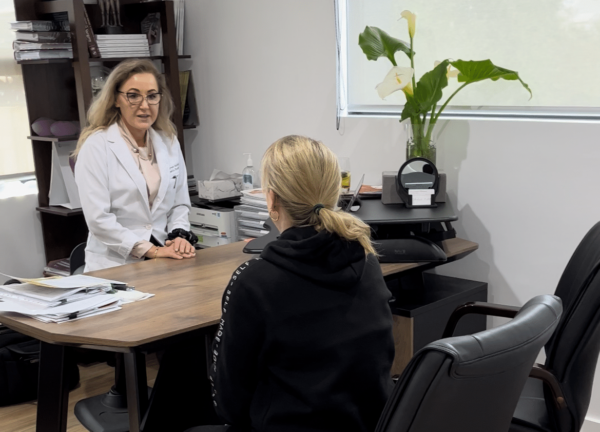Tips to Help you Lose Weight before your Plastic Surgery
Losing weight before your plastic surgery can not only help you heal faster after the surgery but may improve the results of the surgery as well. Some of the benefits include improved quality of sleep, lower risk of poor scar results and other aesthetic concerns. Moreover, it greatly reduces the complications associated with the surgery such as infection, blood clotting or a heart attack. Dr Carmen is keen for you to be near your ideal weight and in good health before your plastic surgery or excess skin reduction surgery.

Why Losing Weight before Surgery Is Difficult but Beneficial
If losing weight was easy, everyone would be in the best shape of their lives. However, it is possible if you take the right approach. A little bit of change in diet and exercise goes a long way. It is never a great idea to drop all that weight at once through crash dieting and excessive exercise. Making slow and steady changes to your lifestyle will give you long-term benefits and prevent all that weight from coming back. Simply start by cutting the unhealthy food items and start some light exercise. Gradually build it up once you feel more comfortable. Always ask your surgeon to guide you about how much weight you should lose before the surgery and work out a suitable plan accordingly.
Reduce the chances of Complications after Surgery Due to Obesity
- Individuals who are overweight usually face certain complications before and after surgery. Listed below are the most common ones:
Reduce the chances of Poor Wound Healing
- Wounds require an adequate amount of oxygen and blood to heal properly.Excess fat puts a lot of pressure on your body, thereby increasing the healing time. During the surgery, you will most likely spend more time on the operating table which can increase the risk of infection.
Reduce the chances of Complications Associated with Anaesthesia
- If you are overweight, your surgeons will have a hard time looking for veins during the surgery. It also makes insertion of a breathing tube much more difficult as well. Figuring the right dose of anaesthesia is 10 times harder with an obese person. That is the reason many surgeons suggest you drop a few kilos before the surgery.
Reduce the chances of Cardiovascular Issues
- It is a no-brainer but the more weight you have, the harder your body needs to work. It means that your heart will have to work harder to provide oxygen and blood to all the organs. It puts you at a higher risk of heart attack, chest pain, high blood pressure and stroke.
Benefits of Losing Weight before Surgery
- Did you know that losing about 5 to 10 per cent of your body weight can significantly improve your overall health? It improves the health outcomes along with reducing preoperative risks associated with the surgery.
- It reduces your cholesterol levels and minimizes the risk of type 2 diabetes.
- If you are undergoing plastic surgery, being in a healthier weight range will eliminate the risk of wound infection as well as revision surgery.
- Weight loss minimizes complications associated with anaesthesia during and after the procedure.
- A healthy body ensures faster healing. If you don’t wish to stick to your bed, waiting for your wounds to heal for ages after the surgery, weight loss is your best option.
- Losing weight before the surgery greatly minimizes the risk of cardiovascular diseases and other heart-related issues after the surgery.
- A healthy body will heal quickly and effectively, minimizing the recovery time, allowing you to return to your normal life.
The Concept of BMI and Ideal BMI
Let’s start with what is BMI? BMI stands for body mass index and measures the percentage of fat in your body. If you have wondered what your ideal weight should be as per your weight, height and age, BMI will help you determine that. Although there are a lot more factors that determine the health of your body, BMI is a great starting measure. Let’s look at the general guidelines:
- Underweight – BMI of less than 18.5
- Ideal – BMI between 18.5 and 24.9
- Overweight – BMI between 25 and 29.9
- Obesity – BMI greater than 30
Ideally, you should have a BMI between the ranges of 18.5 and 24.9.
If you are planning to undergo a weight loss surgery, you must have BMI of 30 or above, a medical condition due to obesity as well as six months of supervised weight loss attempts to qualify for the surgery.

Best Tips to Lose Weight Before Surgery
First things first, consult with your plastic surgeon and ask him/her; what is the right amount of weight you need to lose before the surgery? In most cases, they will refer you to a nutritionist to ensure you lose it the healthy way. We also recommend doing that, however, please see below a general guideline for anyone considering surgery or not.
-
Drink More Water
This might come as a surprise to you that the first tip we mention is about drinking water. Believe it or not, drinking water can help you lose weight. Our body cannot differentiate between thirst and hunger signals. A lot of times when you think you are hungry, you might just be thirsty. So, aim at drinking 2 to 3 litres of water every single day and no, the juice does not count.
-
Cut Out the Processed Stuff
If it comes ready-made out of a packet, you probably shouldn’t be eating it. It goes for all chips, cookies, chocolates, and all the yummy stuff you crave. If you cannot cut it out completely, at least reduce the quantity in half. Aim at eating meals that are made in the comfort of your own home.
-
Load up on the salad
If you cannot replace meals with salad, we get you. Simply prepare a salad to go along with your meal instead. Eat the salad first and then proceed with the meal. Salad will fill up your stomach, making you eat less of the actual meal.
-
Cut off the sugar
This is a no brainer. You have to cut off sugar. Replace it with healthier, calorie-free alternatives as suggested by your doctor. It works wonders for dropping off those pounds and is much healthier for you as well.
-
Exercise More if possible
Exercising regularly will amplify the results of your weight loss efforts. If you have never worked out before, simply start with a light walk and then gradually build it up.
-
Avoid Rushing and Stress
Last but not the least, do not rush. The last thing you want to do before the surgery is harming your body by crash dieting and excessive exercise. Losing weight is healthy if you lose it the healthy way.
Pre Surgery Nutrition
Losing weight before the surgery is one aspect, making sure that you are getting all the nutrients is another. Make sure that you are following this guideline before the surgery.
- Keep your protein intake in check especially 2 to 3 weeks before the surgery. It is advised to consume 65 to 100 grams of proteins per day. Proteins are essential for having a healthy immune system, muscles and bones.
- Your body needs essential vitamins and mineral which means you need to stock up on veggies and fruits. The more colourful your plate is, the fuller of vitamins and nutrients it is. Specifically load up on greens as they contain loads of Vitamin k, Vitamin C and magnesium, all of which are essential for your health.
- Your body needs a lot of Vitamin B. Load up on whole grains to make sure you are getting an adequate amount of vitamin B.
- While you need to include certain foods in your diet, you need to eliminate the others. Eliminate sugar, caffeine, excessive salt, alcohol from your diet before the surgery.
Frequently Asked Questions
Should you lose weight before surgery?
- If you are overweight or obese, the general answer is yes. However, your surgeon will truly be able to guide you whether you should or shouldn’t lose weight based on the type of surgery you are getting and your current weight.
Is it best to lose weight before breast surgery?
- Yes, it is ideal. The optimal results of breast surgery come when patients lose weight first, according to a new study in the September edition of PRS Plastic and Reconstructive Surgery
Can you have surgery if you’re overweight?
- Yes, you can still undergo surgery if you are overweight in most cases. However, it slows down your recovery and healing process immensely.
How much weight can you lose on a pre-op diet?
- On average, patients lose anywhere between 5 to 10 kg to improve their body lift surgery results.
What is a healthy BMI for surgery?
- A body mass index range of 18-24.9 is considered optimal for most surgeries. However, if you are undergoing bariatric surgery, you will typically qualify if you have a BMI of 30-35. Possibly up to 40.
What foods cause rapid weight loss?
- What causes weight loss is calorie deficit. If you can create a calorie deficit through any type of food, you will lose weight. However, to lose weight healthily, you must consume foods which are good for your health. Whole eggs, leafy greens, salmon, cruciferous vegetables, lean meat, tuna, beans and legumes, whole grains, fruits and vegetables and of course water.
How much weight can you lose in a month?
- Ideally, you shouldn’t lose more than 1kg per week, making it 4-5kg per month at max.
Can I get a breast reduction if I’m overweight?
- It depends on a couple of factors. Of you are a few kilos above your ideal weight, you can surely undergo breast reduction surgery without any complications. However, if you are significantly overweight, it will increase the risk of complications after the surgery.
Does a liquid diet shrink your stomach?
- Yes, your stomach and liver will shrink on a liquid diet. However, it is not usually recommended as most liquid diets, the number of calories you consume is cut in half. As your body learns to survive on fewer calories. Your metabolism dramatically slows down. Hence, liquid diets are not recommended unless advised by your plastic surgeon. Bariatric Surgeons may recommend a liquid diet to improve weight loss surgery results.
What are the 5 foods that burn belly fat?
- It is important to realise that there are no food groups that directly burn belly fat. You lose weight all over your body instead of on one particular body part. However, these foods are regarded as a great accelerator to your weight loss program; avocados, bananas, yogurt, berries, green tea and citrus fruits.
What is a good BMI for a tummy tuck – abdominoplasty?
- If your BMI is 30 or above, you will be asked to lose some weight before getting abdominoplasty surgery. Also, keep in mind that abdominoplasty is not a weight-loss procedure. Rather it is a procedure to get rid of excess skin.
Can you get a tummy tuck – abdominoplasty if you are obese?
- Generally, surgeons advise against it. You should be close to your ideal body weight if not exactly there before getting the surgery.
Is it better to lose weight before an abdominoplasty?
- Yes, it is advised to lose weight and be as close to your ideal weight as possible before undergoing the surgery.
What is the maximum weight for an abdominoplasty?
- Ideally, you should be at your perfect weight. However, in most cases, patients wishing to undergo tummy tuck – abdominoplasty are on the heavier side. You can still undergo the surgery if you are 1 to 20 pounds above your ideal weight range.
What does your BMI need to be for liposuction?
- People who are in their healthy BMI (18.5 and 24.9) and overweight (BMI between 25 and 29) can undergo liposuction as long as it’s clear that it is not a weight-loss procedure. Rather, it is a body contouring process for stubborn pockets of fat.
Is general anesthesia safe for obese patients?
- Obesity may raise the risk of complications from anesthesia. However, there is no immediate life-threatening risks associated with it.
Further Recommended Reading
- Preparing for Surgery – tips to get ready for surgery in Hospital
- Get Fit before Surgery – Aedit article
- Best Weight Loss Surgery Websites, Forums & Resources
Please call Dr Carmen’s team on 03 9852 0545 for any questions, information, motivation and help. We are here to assist you through your journey.







